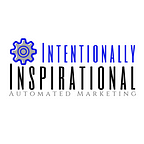B2B vs. B2C Marketing and How to Tackle Both
Creating a marketing strategy can be difficult, especially if you’ve never done it before. There are a lot of moving pieces and things that need to happen and it can be difficult to decide where to start.
While each person and company is different, one of the very first things you want to do when creating a marketing strategy is to determine who your audience is. You need to come up with a profile of your ideal customer and the best way to start is to determine if you’re selling B2B or B2C.
What is B2B?
Diving into even the middle of the marketing pool can seem daunting, especially when people start using acronyms for terms you don’t understand.
B2B means business to business. It stands for a business that sells its services or products to other businesses. Some of the products you use now can be considered examples of B2B companies.
Think of Slack, which sells its services to businesses so that their employees can communicate more freely. Or a marketing agency, which offers to provide marketing services to businesses looking to make more sales.
These are both examples of B2B sales.
What is B2C?
There are also B2C businesses, meaning business to consumer.
Businesses that fall into this category include restaurants, retail stores, and even Netflix.
What are the marketing differences for B2B and B2C companies?
Aside from dealing with different target audiences, there are some key differences between companies that deal with B2B sales and companies that deal with B2C sales.
Different Target Audiences
The most obvious difference is that you’re dealing with different target audiences.
In B2B sales, you’re dealing with a business, which means a decision to buy may be made by one or more people.
In B2C sales, you’re most likely dealing with one person.
Logic vs. Emotion
Most marketers will tell you that one of the key differences between B2B and B2C sales is logic versus emotion.
In B2B sales, many purchase decisions rely on logic. The purchase needs to make logical sense to a business for it to happen. That purchase needs to advance the company’s goals in one way or another or it’s not useful.
In B2C sales, emotion can play a large part in a purchase decision. Someone may want to be the first of his friends to get the new iPhone. Someone may want a Tesla because all of her friends have a Tesla. B2C sales play a lot on emotions.
That’s not to say that these two sales tactics do not overlap but in most cases, B2B sales rely on logic while B2C sales rely on emotion.
If you want to take a closer look at logical and emotional sales, check out this previous post. Intentionally Inspirational also dives deeper into logical sales here and emotional sales here.
Data vs. Clarity
For B2B sales, the purchaser wants to know the data behind the product or method. Why is this product the best deal for the company? What benefit does this product offer that will make the company perform better? What data do you have to back up these assertions?
B2B purchasers want to know why your product is better than similar products on the market and what makes it better.
For B2C sales, you usually need to be simple and straight forward. Purchasers want to know why the product is better without all the data bogging down the decision. If a shopper wants more details, he will look for them. Otherwise, all he wants to know is why this product is appealing in clear and concise language.
Purchase Time
One of the biggest differences you’ll notice between B2B sales and B2C sales is the buying cycle.
B2B sales take time. Usually, it’s not just one person making the purchasing decision, but multiple. All of these people must sign off on the purchase before it’s made. A B2B sale doesn’t happen over one phone call or one meeting. It’s usually not just a click of a button.
B2C sales can happen quickly. As stated before, these can be emotional sales which means emotional decision making. This of it as an “I want it so I bought it” mindset. That’s not to say that all B2C sales will happen quickly, but they can.
Conclusion
Knowing what kind of sale you’re dealing with — B2B or B2C — won’t just help you craft a marketing plan, but it will also help you set expectations when it comes to sales.
If you’re a B2B business, you’ll know that the sales cycle takes longer. If you’re a B2C business, you’ll know to keep your sales pitches brief and to the point.
If you’re just building your marketing plan, look at whether you’re a B2B or B2C business and start building from there.
Written by Erika Towne
